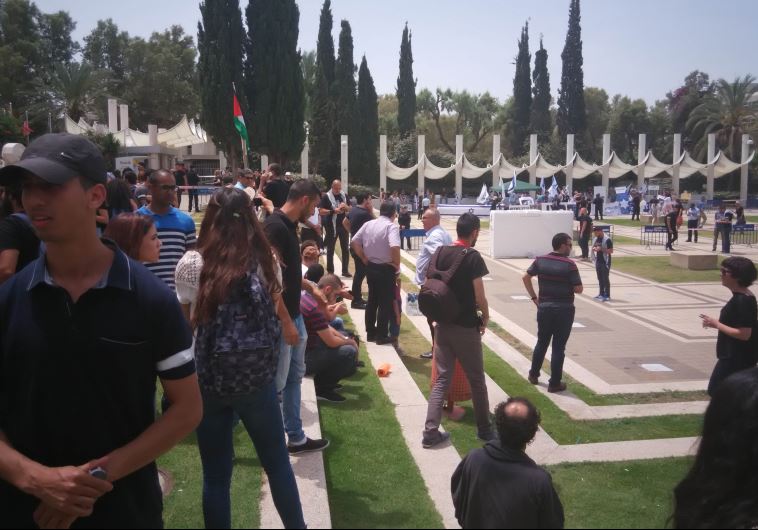Here and There: BDS – the enemy within
The connection between the BDS campaign, Nakba Day and Tel Aviv University can be made through academics employed by the university.
 Nakba day demonstrations at Tel Aviv University(photo credit: Ariel Ben Solomon)
Nakba day demonstrations at Tel Aviv University(photo credit: Ariel Ben Solomon)